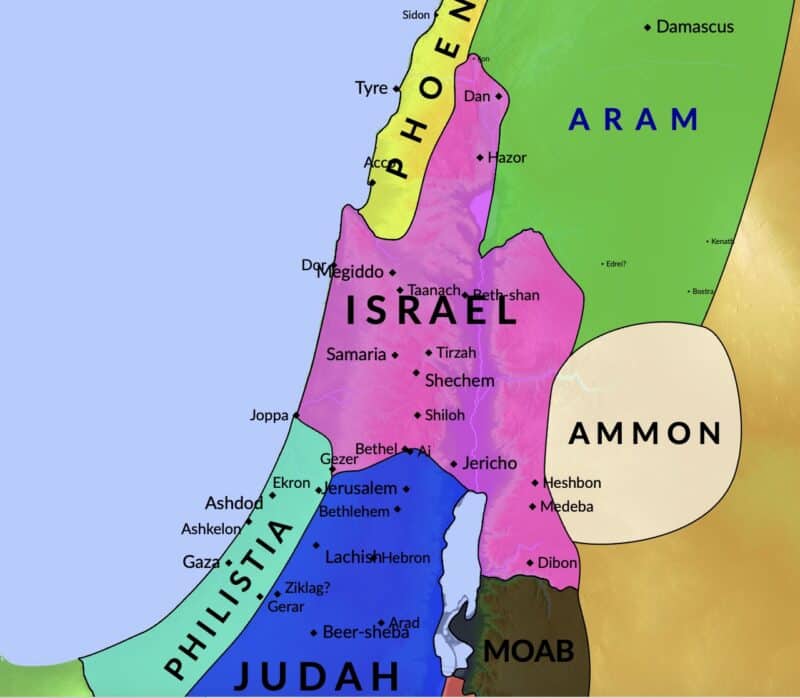Outline of 1 & 2 Kings:
- 1 Kings 1-11 The Wisdom and the Folly of King Solomon
- 1 Kings 12 -16 Kingdoms in Chaos
- 1 Kings 17 -2 Kings -13 Elijah and Elisha
- 2 Kings 14 -17 Decline of Israel in the North
- 2 Kings 18 -25 Decline of Judah in the South
- How does God reveal Himself in this passage? God’s nature, character, wisdom, will and ways.
- What aspects of our need for redemption are exposed in this passage?
- How is the gospel of Jesus Christ reflected in this passage?
- What faith response does this passage compel from us?
Ahab is remembered ignobly for several reasons…
- He was evil and provoked the LORD more than any other king 16:30, 33
- He worshiped false gods e.g. Baal, Asherah 16:32-33
- His cunning and cruel wife Jezebel 16:31
- His childish and selfish behaviors 20:43; chapter 21
- His own failure to seek LORD, to worship LORD or to offer thanks to the LORD Chaps 16-22
- He consistently refused to listen to the word of the LORD Chaps 16-22
“Should you find yourself in a chronically leaking boat, energy devoted to changing vessels is likely to be more productive than energy devoted to patching leaks.”
Warren Buffet
“Sanctify them in the truth; Your word is truth.”
John 17:17
“History is not a random series of meaningless events. It is rather a succession of periods and happenings which are under the sovereign rule of God, who is the God of history.”
John Stott
“God, in the end, gives people what they most want, including freedom from himself. What could be more fair?”
C. S. Lewis
There are no random or meaningless events in a world governed by a truly sovereign God. Since God is sovereign, we can believe God’s Word is true, God’s judgements are certain, and God’s promises are trustworthy.
“How much have your dreams been personal, earthbound, physical, and here-and-now? Have you been motivated by your kingdom more than God’s Kingdom? How is your present discouragement, disappointment, confusion or grief a window on what has actually captured your heart? Have you really wanted God to be your wise and loving Father who brings into your life what he considers best, or have you wanted him to be a divine waiter, the all-powerful deliverer of your dreams?”
Paul Tripp
“If we come to Scripture with our minds made up, expecting to hear from it only an echo of our own thoughts and never the thunderclap of God’s, then indeed he will not speak to us and we shall only be confirmed in our own prejudices. We must allow the Word of God to confront us, to disturb our security, to undermine our complacency and to overthrow our patterns of thought and behavior.”
John Stott, Authentic Christianity


